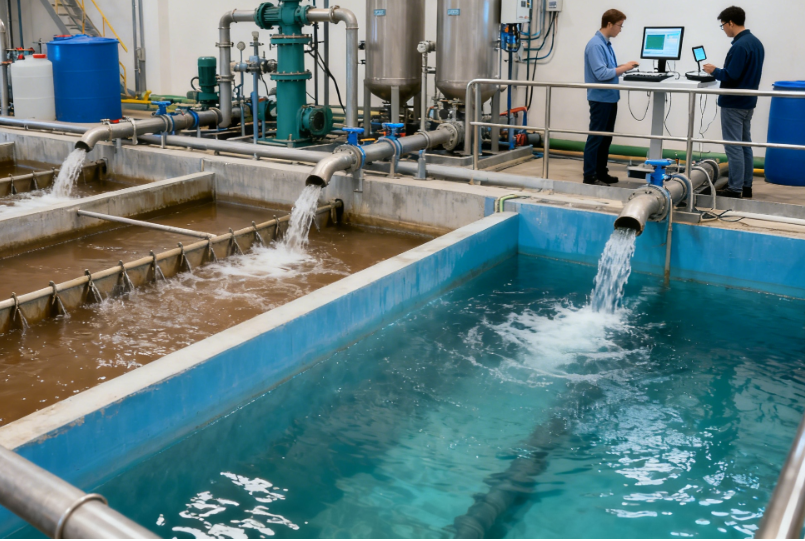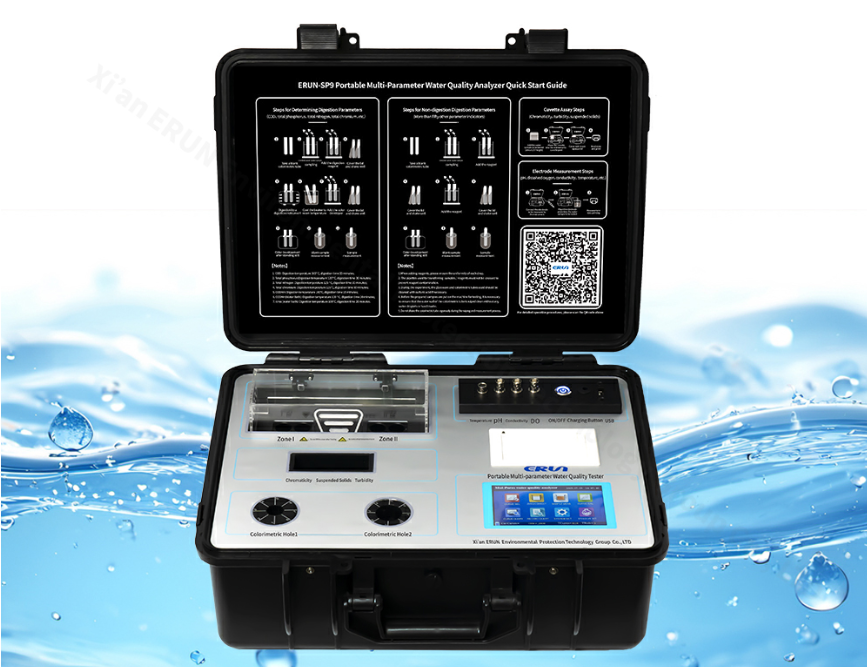Water hardness is a critical factor that affects household appliances, industrial systems, and even aquaculture operations. Measuring water hardness accurately helps prevent scale buildup, ensures effective water treatment, and protects your plumbing and equipment. In this guide, we explore the best ways to check water hardness and highlight how the ERUN-SP9 portable multi-parameter water quality detector simplifies the process.
Water hardness refers to the concentration of calcium (Ca²⁺) and magnesium (Mg²⁺) ions in water. Hardness can be classified into temporary hardness, which can be removed by boiling, and permanent hardness, which requires chemical treatment.
Hard water can cause a range of problems:
Household: Soap scum, reduced detergent efficiency, limescale buildup in kettles, washing machines, and pipes.
Industrial: Reduced boiler efficiency, scaling in cooling towers, and equipment damage.
Aquaculture: Alters water chemistry, potentially affecting fish health and growth.
Titration is a traditional method using reagents like EDTA to determine Ca²⁺ and Mg²⁺ concentrations. While accurate, it is time-consuming and requires careful preparation. Test kits are convenient but less precise for industrial applications.
Modern meters use conductivity-based estimation to measure hardness. They provide quick, reliable results and are ideal for both field and laboratory use.
For the most precise results, lab-based methods such as ICP-OES or AAS can measure water hardness at trace levels. These methods are usually reserved for regulatory compliance or research purposes.

The ERUN-SP9 combines a 16-channel optical method with electrode technology to measure more than 60 water parameters, including pH, conductivity, TDS, salinity, dissolved oxygen, temperature, and hardness. This all-in-one solution eliminates the need for multiple instruments.
Different water systems require different monitoring approaches. ERUN-SP9 allows users to select only the parameters they need or monitor multiple indicators simultaneously, making it suitable for households, industrial water systems, aquaculture, and research labs.
Lightweight, portable, and highly accurate, the ERUN-SP9 ensures rapid, reliable readings wherever you need them. Its flexibility makes it ideal for routine monitoring and troubleshooting.
Collect a representative water sample in a clean container, avoiding contamination or exposure to air that might alter mineral levels.
Turn on the ERUN-SP9, select the hardness parameter, and configure any additional parameters if needed. The touch-screen interface allows easy switching between options.
The device displays results in mg/L or ppm, with high precision and repeatability. Regular monitoring helps track changes over time, enabling early intervention if hardness levels rise unexpectedly.

Soft water: 0–60 mg/L
Moderately hard: 61–120 mg/L
Hard: 121–180 mg/L
Very hard: >180 mg/L
Accurate readings allow you to:
Adjust water treatment systems appropriately
Protect plumbing, boilers, and industrial equipment
Manage water quality in aquaculture environments
Use ion-exchange softeners or reverse osmosis systems when hardness exceeds recommended levels.
Routine checks help prevent scaling, maintain system efficiency, and ensure water safety. With ERUN-SP9, monitoring becomes fast, accurate, and repeatable, minimizing the risk of unexpected issues.
Understanding and managing water hardness is essential for households, industries, and aquaculture. The ERUN-SP9 multi-parameter water quality detector offers an all-in-one, portable, and highly accurate solution for measuring hardness and other key water parameters. Ensure your water is safe, balanced, and well-maintained—take control of water quality today with ERUN-SP9.